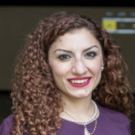Speakers

Giorgio Cafiero
CEO and Founder
Gulf State Analytics

Manal Shehabi
Academic Visitor, St. Antony’s College, University of Oxford; Founding Director, SHEER Research & Advisory; Research Associate, Economic Research Forum

Annelle Sheline
Research Fellow, Middle East Program
Quincy Institute
About the Webinar
On November 10, Arab Center Washington DC (ACW) hosted a webinar titled “The US-Saudi Rift: Economic Disagreement or Geopolitical Realignment?” Panelists were Giorgio Cafiero, CEO and Founder of Gulf State Analytics; Kristian Coates Ulrichsen, Non-resident Senior Fellow at Arab Center Washington DC; Manal Shehabi, Academic Visitor at St. Antony’s College, University of Oxford and Founding Director of SHEER Research and Advisory; and Annelle Sheline, Research Fellow in the Middle East Program at the Quincy Institute. Imad K. Harb, Director of Research and Analysis at ACW, moderated the event.
Kristian Coates Ulrichsen discussed the longer-term drift between the United States and Saudi Arabia, which dates back to the Obama and Trump administrations, stating that what makes this drift different now is the personalization of the disagreements between President Biden and Saudi Crown Prince Mohammed bin Salman (MBS). He maintained that MBS, at only 37 years old, can take a long-term perspective when looking at the United States, something that US administrations are not able to do due to electoral politics.
- On the recent rift between the United States and Saudi Arabia due to OPEC+ production cuts, Ulrichsen said, “Where I think we’re seeing differences now is that the relationship at both ends of senior levels is now personalized. It has become tainted by bad personal relations.”
- On the future of the US-Saudi relationship, Ulrichsen stated, “Going forward, I foresee continuing tension in the relationship, perhaps more honesty about what the relationship is and is not, which might be a good thing.”
Manal Shehabi broke Saudi calculations down into economic, energy, and political considerations, and argued that the OPEC+ decision was largely an economic one, rather than a political one. Shehabi discussed the role of the global economic downturn following the COVID-19 pandemic and the impact of both the Russian invasion of Ukraine and rising global inflation on Saudi Arabia’s economic and political calculus.
- On the timing of the OPEC+ production cut ahead of US midterm elections, Shehabi said, “No one was sitting there thinking, ‘How can we influence the elections?’ I think the election timing was unfortunate, and I do think that even though this decision was not primarily a political decision, it does reflect the nature of the political drift between the United States and Saudi Arabia.”
- On Saudi decision-making behind the oil production cut, Shehabi said “The driver of the production cuts is to avoid a potential decline in the oil price and therefore oil export revenue.”
Giorgio Cafiero covered a range of topics, including international geopolitical shifts, developments in Saudi-Russian relations, and the long view of US-Saudi relations.
- On Saudi Arabia’s approach to changes in the international power balance, Cafiero stated, “As the Saudis want to assert a lot more autonomy from Washington, their relationship with Moscow is quite important. The Saudis are preparing for a more multipolar world in which the world is much less western-centric.”
- On the significance of Saudi Arabia’s relationship with Russia for US-Saudi relations, Cafiero said, “By moving closer to Russia, the Saudis are capable of sending a message to Washington that they are much less concerned about US interests and that Saudi Arabia is willing to pursue a ‘Saudi first’ agenda.”
Annelle Sheline spoke about the new multipolarity of the global political system, changes that must be made in US diplomacy, human rights issues, the US legislative response to the recent OPEC+ production cut, and the significance of the US defense sector to US-Saudi relations.
- On the necessity for changes in US diplomatic strategy due to the world’s “newly multipolar system,” Sheline said, “America’s foreign policy class is quite accustomed to being able to assume that other countries will go along with US preferences, and it is going to take some adjusting to understand how America is going to have to embrace diplomacy and to understand that other countries are not always going to follow their preferences….The sooner American policy makers figure that out, the less likelihood for conflict we’re likely to have.”
- On prospects for the US-Saudi relationship, Sheline stated, “The Saudis remain quite dependent on the United States. The Saudi defense sector and military remains primarily made up of American-made materiel and the Saudi military operates with the support and partnership of both US military contractors as well as…both active-duty members of the US military as well as retired military officials.”
Featured image credit: SPA

